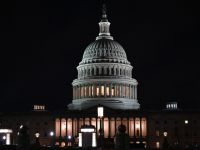1. Lebanon’s privatization predicament
2. Government vs. private GSM operators - the lingering dispute
3. Government strives to increase its share of mounting cellular profits
The most recent chapter in this protracted dispute began when the Lebanese cabinet announced it was to review the contracts of the country’s two cellular phone operators, Cellis and LibanCell, contending both companies failed to pay extra taxes after exceeding the number of lines they were entitled to sell under the original contract.
The government then re-referred the matter to the Lebanese Government Auditing Bureau, whose study has established that the two GSM network firms have committed 20 violations of their contract, and concluded that they owe substantial back taxes. Contrary to the minister’s initial demand, which amounted to $300 million in fines and back-payments from each cellular operator, the Auditing Bureau established that in fact $687 million is owed by Cellis, while LibanCell owes $371.2 million.
The two firms maintained that they had fully abided by their contract and have vowed not to pay any fines. The companies are now demanding the dispute be settled by international arbitration, adding they both had filed requests with the International Chamber of Commerce (ICC) in Paris. The government had announced that it would not accept international arbitration, insisting the matter should be settled under Lebanese law.
This latest development follows the government’s rejection last month of a combined offer by LibanCell and Cellis to pay $1.35 billion each to turn their 12-year GSM build, operate and transfer (BOT) contract, due to expire April 2005, into a 20-year license. The government broke-off the license negotiations in May, saying it would pursue legal action against both firms.
Posts and Telecommunications Minister Issam Naaman dismissed a warning by the Standard and Poor's rating agency that failure to bring in the offered $2.7 billion of GSM license revenue in the fourth quarter would help trigger a downgrading of the country's already sub-par investment rating.
"I respect the report but we cannot let it dictate policy, especially when the higher interest of the state is involved," Naaman said at a press conference.
Naaman then called on the government to invite other mobile phone companies to bid for a third GSM license and a more advanced UMTS license by the end of September. Naaman said he expected parliament to pass a law in July setting guidelines for accepting the offers. The law would go through, he said, regardless of progress in settling a major dispute with the two existing operators. Vodafone, a UK-based cell phone operator, is reported to have already offered $1.35 billion for a third license, although the government has yet to receive this offer in writing.
In fact, the British firm’s proposal called for the government to maintain 40 percent of the third company and Vodafone the rest. Such government plans to hold shares in a cellular phone company may seem at odds with a policy of privatization, but Naaman explained that “Privatization does not mean that the state must sell all its holding.”
Preparations to launch a third operator had in fact began as early as January 1999 when Naaman announced the government was looking into establishing a state-run cellular phone company, which would compete with the established operators. Press reports expected the new company would offer its services to the public starting 2003.
The existing mobile phone operators considered such moves as a blatant breach of the BOT contract, whose terms grant them exclusivity for seven-and-a-half-years. They have prepared a counter-attack against the government, saying it collects more than 50 percent of each phone bill and that call rates have doubled because of a doubling of the tariffs they have to pay.
When asked by Lebanon’s Daily Starwhether a rise in the price of cellular phone calls could be the answer to the government’s relentless endeavors to increase its share of the cellular revenues, Hussein Rifai, chairman and general manager of LibanCell, positively ruled out such a move. “The government is the regulator and fixes the rules of the game. We cannot increase the price of phone calls without its approval.”
The rules of the game seem to have changed since. Lately the Lebanese government had to call on the two mobile phone companies to cancel a unilateral 5 percent price rise introduced this July 1. Naaman justified the call by financial problems facing Lebanese citizens and the significantly larger than forecast profits the two companies had reported since 1994.
The government is familiar with the one-sided price increase tactic, since in April 1999 it too announced a 43 percent rise in cell phone rates. It was then that Cellis lost patience and came out for the first time with public criticism of the way in which the government is regulating the mobile phone business. Salah Bouraad, Cellis’ chairman, called a press conference at which he claimed his company’s attempts to conduct a dialogue with the ministry on the matter had been fruitless.
“The government must choose to act as either party to the agreement or law-maker, but not to confuse it roles,” he said. “We’re able to increase the government’s share much more through other measures than it can through a simple price increase.”
The increase, which put cellular call prices at 13.23 cents a minute, did not affect the private operators’ share, which remained 4.63 cents. The government’s share on the other hand, jumped from 50 to 66 percent, amounting to 8.6 cents. The government stood to gain more than $30 million in revenues from this measure.
“How is it possible for the government to deal with the country’s largest foreign investor in such an off-hand way?” Bouraad wondered in an interview with the Daily Star. Since 1994, Cellis has invested $305 million in infrastructure and operations, with an additional $100-million loan from the International Finance Corporation. LibanCell says it has invested more than $250 million over the past four years in its mobile network.
An earlier round of verbal warfare between the government and cellular phone operators had climaxed in July 1998, when Abdel-Latif Zein, chairman of the parliamentary post and telecommunications committee, accused both service providers of conniving with their dealers to sell pre-paid cellular lines above the legal limit of $50. Clic from Cellis and the Premiere Plus from LibanCell were sold on the black market for between $100 and $150, because demand had kept growing at a time that supply was virtually frozen by a government’s decision to impose a ceiling of 250,000 customers per operator.
The government’s move to prevent operators from granting additional GSM lines lost it $53 million in potential revenues, calculated Cellis’ Bouraad. “The contract is crystal clear on that matter. We are mandated to follow market demand. If we don’t, we’re putting ourselves outside the law. If you grant phone operations to the private sector, you should follow the private sector’s philosophy and allow us to expand and diversify,” he added.
| Continue... |
© 2000 Mena Report (www.menareport.com)







